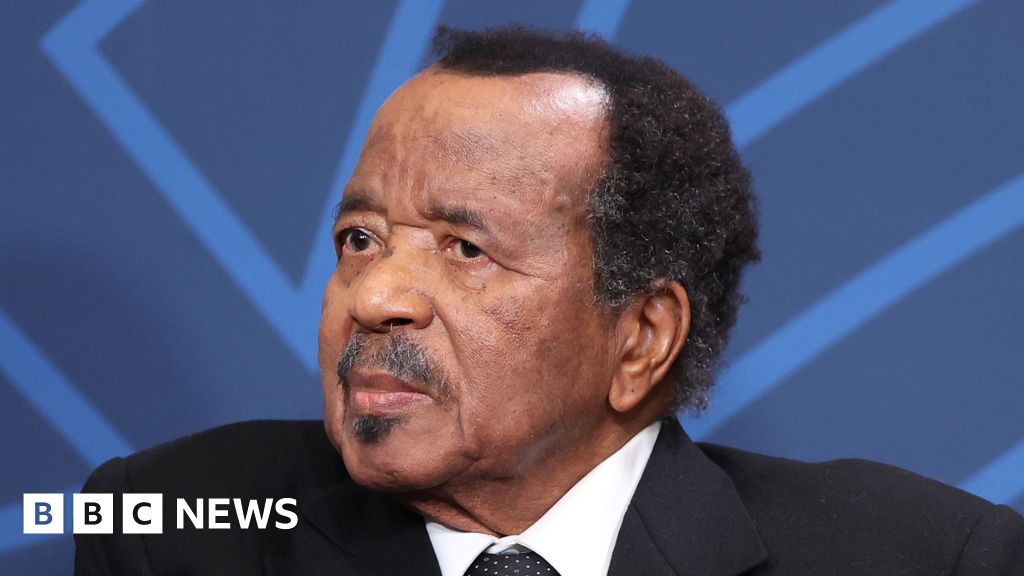TAIPEI, Taiwan -- Taiwanese company Gold Apollo said Wednesday that it authorized its brand on the pagers that exploded in Lebanon and Syria but that another company based in Budapest manufactured them.
Pagers used by the militant group Hezbollah exploded near-simultaneously Tuesday in Lebanon and Syria, killing at least nine people, including an 8-year-old girl, and wounding nearly 3,000. Hezbollah and the Lebanese government blamed Israel for what appeared to be a sophisticated remote attack.
The AR-924 pagers were manufactured by BAC Consulting KFT, based in Hungary’s capital, according to a statement released Wednesday by Gold Apollo.
“According to the cooperation agreement, we authorize BAC to use our brand trademark for product sales in designated regions, but the design and manufacturing of the products are solely the responsibility of BAC,” the statement read.
Gold Apollo chair Hsu Ching-kuang told journalists Wednesday that his company has had a licensing agreement with BAC for the past three years, but did not provide evidence of the contract.
At about 3:30 p.m. Tuesday, as people shopped for groceries, sat in cafes or drove cars and motorcycles, the pagers in their hands or pockets started heating up and then exploding — leaving blood-splattered scenes and panicking bystanders.
It appeared that many of those hit were members of Hezbollah, but it was not immediately clear if non-Hezbollah members also carried any of the exploding pagers.
The blasts were mainly in areas where the group has a strong presence, particularly a southern Beirut suburb and in the Beqaa region of eastern Lebanon, as well as in Damascus, according to Lebanese security officials and a Hezbollah official. The Hezbollah official spoke on condition of anonymity because he was not authorized to talk to the media.
Hezbollah, which has pointed the blame at Israel, said in a statement Wednesday morning that it would continue its normal strikes against Israel “as in all the past days” as part of what it describes as a support front for its ally, Hamas, and Palestinians in Gaza.
“This path is continuous and separate from the difficult reckoning that the criminal enemy must await for its massacre on Tuesday that it committed against our people, our families and our fighters in Lebanon,” it said. “This is another reckoning that will come, God willing.”
Hezbollah began firing rockets over the border into Israel on Oct. 8, the day after a deadly Hamas-led attack in southern Israel triggered a massive Israeli counteroffensive and the ongoing war in Gaza. Since then, Hezbollah and Israeli forces have exchanged strikes near-daily, killing hundreds in Lebanon and dozens in Israel and displacing tens of thousands on each side of the border.
At hospitals in Beirut on Wednesday, the chaos of the night before had largely subsided, but relatives of the wounded continued to wait.
Lebanon’s Health Minister Firas Abiad told journalists during a tour on hospitals Wednesday morning that many of the wounded suffered “severe injuries to the eyes” and others had limbs amputated. Journalists were not allowed to enter hospital rooms or film patients.
The health minister said that the wounded had been distributed among all the area hospitals to avoid any single facility being overloaded and added that Turkey, Iraq, Iran, Syria and Egypt offered to help in treating the patients.
Earlier Wednesday, an Iraqi military plane landed in Beirut carrying medical equipment, airport officials said. Abiad said the plane was carrying 15 tons of medicine and medical equipment.
Experts believe explosive material was put into the pagers prior to their delivery and use in a sophisticated supply chain infiltration.
The AR-924 pager, advertised as being “rugged,” contains a rechargeable lithium battery, according to specifications once advertised on Gold Apollo’s website before it was apparently taken down Tuesday after the sabotage attack. It could receive texts of up to 100 characters.
It also claimed to have up to 85 days of battery life. That would be crucial in Lebanon, where electricity outages have been common after years of economic collapse. Pagers also run on a different wireless network than mobile phones, making them more resilient in emergencies — one of the reasons why many hospitals worldwide still rely on them.
Taiwan's Ministry of Economic Affairs said from the beginning of 2022 until August 2024, Gold Apollo has exported 260,000 sets of pagers, including more than 40,000 sets between January and August of this year. The ministry said the pagers were exported mainly to European and American countries and that it had no records of direct exports of Gold Apollo pagers to Lebanon.
For Hezbollah, the militants also looked at the pagers as a means to sidestep what’s believed to be intensive Israeli electronic surveillance on mobile phone networks in Lebanon.
“The phone that we have in our hands — I do not have a phone in my hand — is a listening device,” warned Hezbollah chief Hassan Nasrallah in a February speech.
He later added: “I tell you that the phone in your hands, in your wife’s hands, and in your children’s hands is the agent. It is a deadly agent, not a simple one. It is a deadly agent that provides specific and accurate information. Therefore, this requires great seriousness when confronting it.”
___
Associated Press journalists Bassem Mroue and Abby Sewell in Beirut and Jon Gambrell in Dubai, United Arab Emirates, contributed to this report.

 1 month ago
11
1 month ago
11










 English (US) ·
English (US) ·